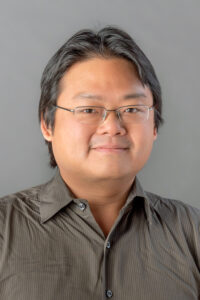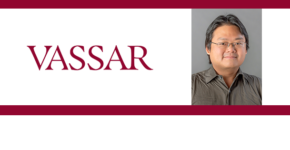
Photo credit: Karl Rabe/Vassar College
How do we gain trust in one another?
Ben Ho, associate professor of economics at Vassar College, delves into this question.
Ben Ho is an associate professor of behavioral economics at Vassar College who applies economic tools like game theory and experimental design to understand social systems such as apologies, identity, fairness and attitudes about climate change. Before Vassar, he taught MBA students at Cornell University’s Johnson School of Management. Professor Ho was also lead energy economist at the White House Council of Economic Advisers, and has worked and consulted for Morgan Stanley and several tech startups. Professor Ho also teaches at Columbia University where he is a faculty affiliate for the Center for Global Energy Policy. His work has been featured in the New York Times and the Wall Street Journal. Ho holds seven degrees from Stanford and MIT in economics, education, political science, math, computer science and electrical engineering.
Why Trust Matters
Why do babies laugh before they walk? Most mammals are born knowing how to walk but the laughs and giggles of human newborns will delight sleep deprived parents long before the babies learn locomotion. One answer is that humans use laughter to build trust, and trust is fundamental to what makes us human.
Humans laugh at the unexpected. This explains peekaboo. A baby forgets a person is there when they can no longer see the person’s face, and thus they laugh with unexpected delight the instant mom or dad shows up again. We laugh at things that defy expectations. We laugh at jokes that violate shared norms. Therefore, when we meet somebody that laughs at the same things we do, they likely had the same cultural expectations, and shared the same norms. Effectively, we have met somebody that we can trust.
Nature has embedded a way to gain trust in our biology because trust is so essential to cooperation. We accomplish more working together than alone. But cooperation entails risk, and overcoming risk requires trust.
But mechanisms like laughter only really work within small communities. To extend trust to larger groups, humans built new institutions based on religions and around markets and the rule of law.
Today trust permeates the economy from the banks that hold our money, to our relationships at work, to the brands we buy. Some of the most important recent innovations, the sharing economy, e-commerce, blockchain were all based on ideas built around trust. We once scoffed at the idea of sharing a stranger’s car or even their house, yet today all that seems normal. The biggest problems our world faces, pandemics, global climate change, all require cooperation and trust at a global scale. Going forward, trust will only become even more central to being human.

Comments
2 responses to “Ben Ho, Vassar College – Why Trust Matters”